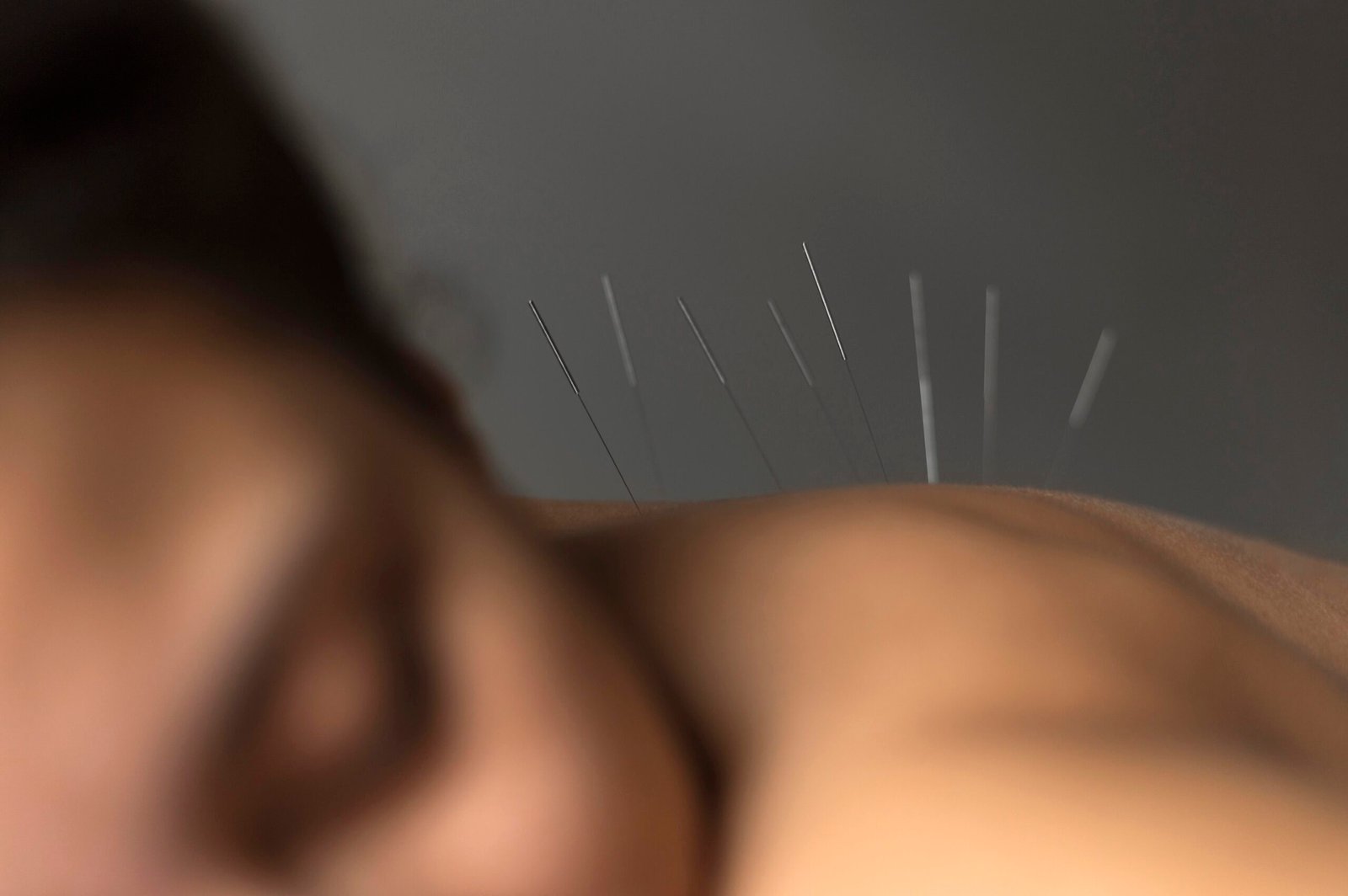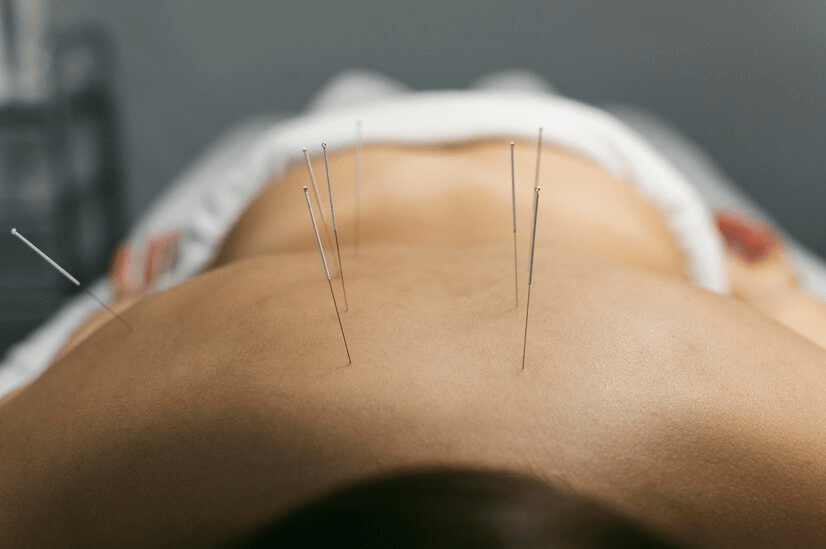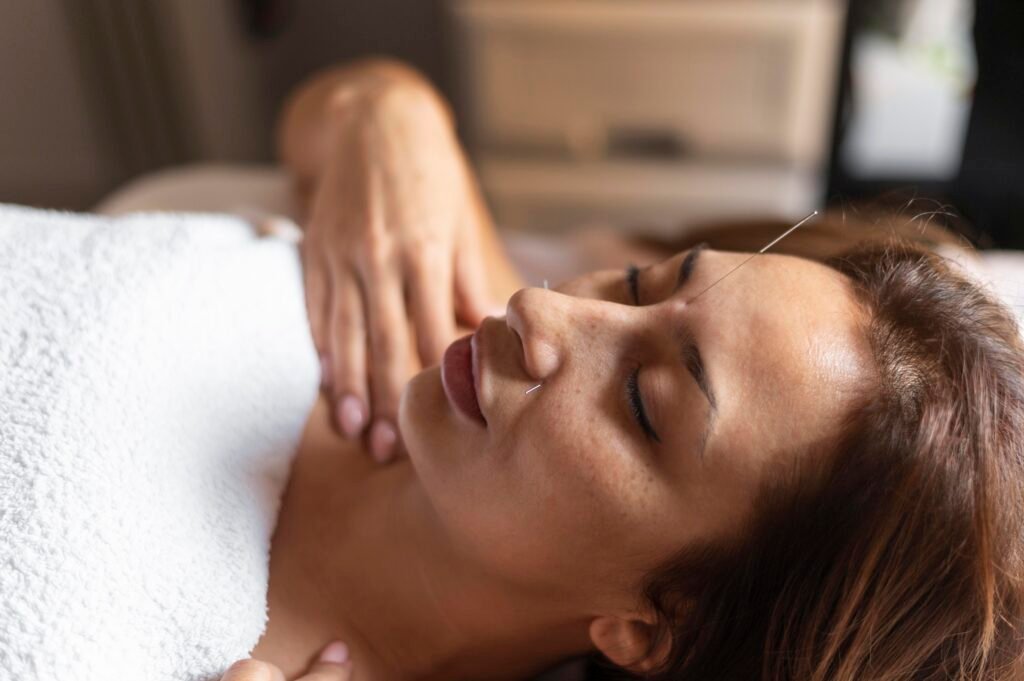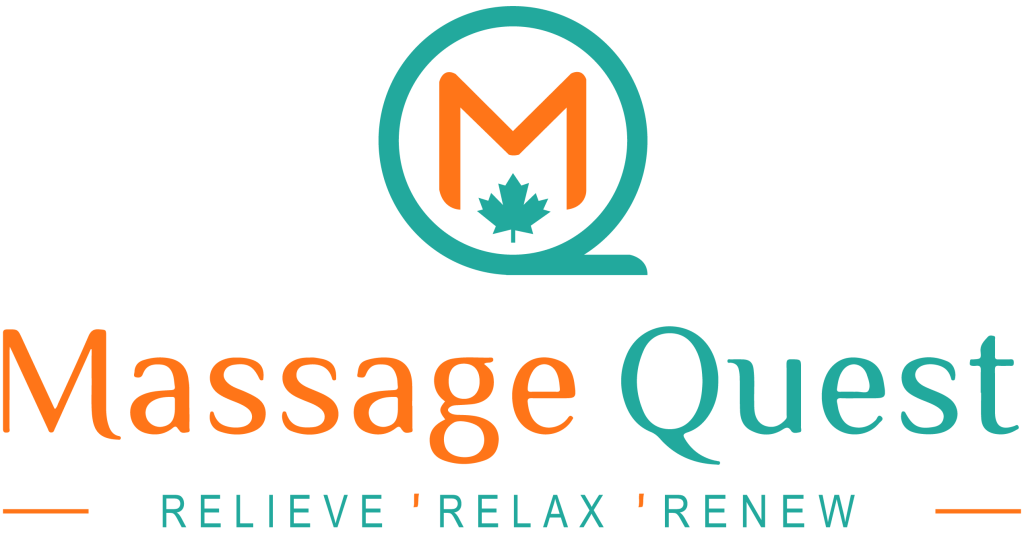Acupuncture
Best Acupuncture and Massage Therapy in Edmonton
Acupuncture is an ancient healing technique that involves inserting thin needles into specific points on the body to stimulate energy flow, known as qi or chi. According to TCM principles, disruptions or imbalances in the flow of qi can lead to various health issues. By targeting acupuncture points along meridians, which are energy pathways in the body, acupuncture aims to restore balance and promote healing. Modern research suggests that acupuncture may also stimulate the release of natural pain-relieving chemicals in the body, such as endorphins and serotonin, leading to pain relief and improved well-being.
Acupuncture offers a multitude of benefits, including effective pain relief for chronic conditions, stress reduction, improved sleep quality, enhanced immune function, and overall promotion of holistic wellness by balancing the body, mind, and spirit. The benefits of Acupuncture include:
● Pain relief: Effective in managing chronic pain conditions
● Stress reduction: Helps alleviate stress, anxiety, and tension
● Improved sleep: Helps with insomnia and sleep disorders.
● Enhanced immune function: Supports the immune system and recovery.
● Holistic wellness: Promotes balance in the body, mind, and spirit

During an acupuncture treatment, several steps are typically involved:
Consultation and Assessment: At the beginning of the session, the acupuncturist will conduct a thorough consultation to understand your medical history, current health concerns, and treatment goals.
Treatment Plan: Based on the information gathered during the consultation and assessment, the acupuncturist will create a personalized treatment plan tailored to your needs.
Preparation: You’ll be asked to lie down on a comfortable treatment table, either face up or face down, depending on the areas to be treated.
Needle Insertion: Using sterile, thin needles, the acupuncturist will gently insert the needles into specific acupuncture points on your body.
Needle Sensation: You may experience various sensations during needle insertion, such as a slight prick or tingling sensation.
Needle Manipulation: Once the needles are in place, the acupuncturist may gently manipulate them by twisting or tapping to further stimulate the acupuncture points and promote energy flow.
Rest and Relaxation: After the needles are inserted and manipulated, you’ll have a period of rest and relaxation. Many people find acupuncture sessions deeply calming and may even fall asleep during this time.
Needle Removal: After the designated treatment time, which typically lasts around 20 to 30 minutes, the acupuncturist will carefully remove the needles.
Post-Treatment Care: The acupuncturist may provide post-treatment care instructions, such as dietary recommendations, lifestyle advice, and self-care techniques to support the effects of the acupuncture treatment between sessions.
Overall, acupuncture is a gentle and non-invasive therapy that aims to restore balance and promote natural healing in the body. Each acupuncture session is customized to address your specific health concerns and goals, making it a personalized and effective approach to wellness.


After an acupuncture treatment, you can expect various responses as your body adapts to the therapy:
Relaxation: You might feel deeply relaxed and calm due to the gentle stimulation of acupuncture points and the peaceful treatment environment.
Pain Relief: If you received acupuncture for pain, you may experience immediate or reduced discomfort as acupuncture helps relax muscles and release natural pain-relieving chemicals.
Energy Boost: Some individuals feel more energized after acupuncture as it rebalances the body’s energy flow, promoting a sense of well-being.
Emotional Changes: Acupuncture can affect mood, leading to emotional release or improved mental outlook by reducing stress and anxiety.
Better Sleep: Many report improved sleep quality post-acupuncture due to its relaxation effects and regulation of sleep patterns.
Temporary Symptoms: You may notice mild bruising or soreness at needle sites, which usually resolves quickly.
Gradual Improvement: While some benefits are immediate, others may develop gradually over multiple sessions, emphasizing the importance of consistent treatment for lasting results.

